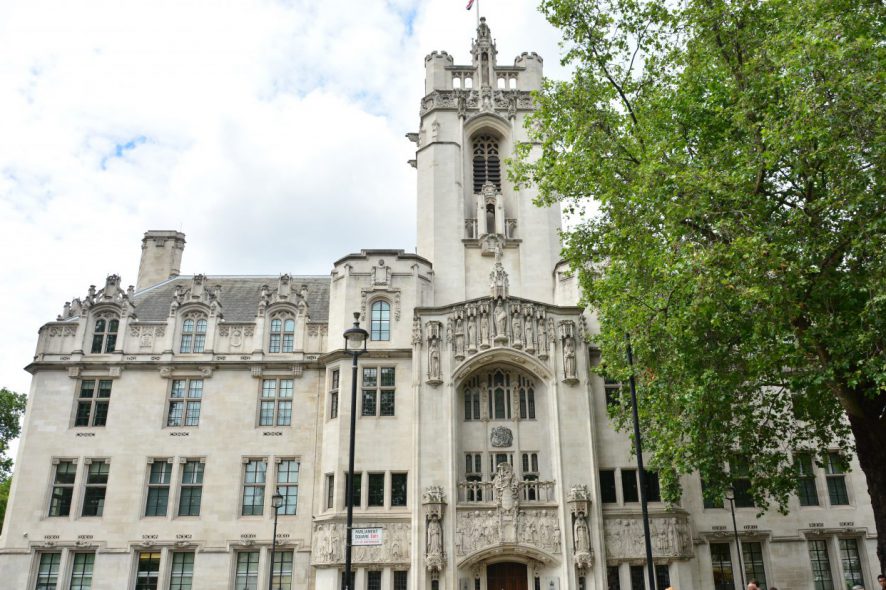Supreme Court of the United Kingdom: A Bench of Lady Hale, President and Lord Reed, Deputy President and Lord Carnwath, Lord Llyoyd-Jones and Lady Arden allowed an appeal filed against the Judgment of Northern Ireland Court of Appeal concerning a stay granted on the proceedings for a claim of damages under Section 8 of the Human Rights Act, 1998.
The appellant’s son, Pearse Jordan, was shot and killed by a member of Royal Ulster Constabulary in November, 1992. His father, Hugh Jordan, made an application to the European Court of Human Rights complaining that the failure to carry out a prompt and effective investigation into his son’s death. He sought a declaration that the Coroner and Police Service of Northern Ireland had been responsible for delay in the commencement of the inquest in violation of his rights under Article 2 of the European Convention on Human Rights together with awards of damages under Article 8 of the Human Rights Act. Subsequently, the proceedings were taken over by his wife, the appellant, following his deteriorating health.
The delays in the investigation into Pearse Jordan’s death, and the repeated litigation which has characterised that process, are a common feature of what has come to be known as “legacy” cases: that is to say, cases concerning deaths occurring in Northern Ireland during the “Troubles”. In his recent judgment, Hughes’ Application for Judicial Review, In re, [2018] NIQB 30, Sir Paul Girvan found that there was a systematic delay in these cases, arising from a lack of resources to fund inquests of the length, complexity and contentiousness involved.
The Court Appeal, after considering the provisions of the Human Rights Act, laid down a general rule that claims of the present kind could not be brought before the conclusion of an inquest, and that any claims which had been brought before that stage should be stayed until then. This was, however, clarified by the Court of Appeal in a subsequent decision in McCord’s Application for Judicial review, In re, unreported, 18-1-2019, which judgment appears to confine the general rule prescribed in the present case to those cases where the only outstanding issue is damages and where an inquest can be expected to begin within the near future, if not already underway.
The present appeal was brought against the Judgment of the Court of Appeal staying the proceedings brought by Hugh Jordan until the completion of inquest. The Supreme Court was of the view that the appeal ought to be allowed. It was discussed that a stay on proceedings can be ordered in appropriate circumstances even n cases brought by persons claiming a violation of their Convention rights, however, regard must be had to three important aspects of the Convention rights:
(a) Rights that are practical and effective: Convention rights must be applied in a way which renders them practical and effective, not theoretical and illusory. The effectiveness of the right under article 2 to have an investigation into a death begin promptly and proceed with reasonable expedition could be gravely weakened if there were a general practice of staying proceedings seeking to secure the prompt holding of an inquest, typically by obtaining a mandatory order or a declaration.
(b) Determination within a reasonable time: The staying of proceedings will be unlawful if it results in a breach of the “reasonable time” guarantee in Article 6 of the Convention. That would be a real possibility in some cases if stays until after the completion of an inquest were ordered as a general rule. That right under Article 6 is distinct from Article 2.
(c) Proportionality of restrictions on access to the Courts: Since a stay of proceedings prevents a claim from being pursued so long as it remains in place, it engages another aspect of Article 6 of the Convention, namely the guarantee of an effective right of access to a court. That exercise requires consideration of the circumstances of the individual case before the court.
The Supreme Court observed: “There is no doubt that there may be cases in which it is proportionate to impose a stay on a claim for damages in a legacy case, weighing the relevant factors for and against it. There is equally no doubt that there may be cases in which, weighing those factors, a stay is not proportionate. Since the relevant factors can differ in nature and weight from one case to another, it follows that courts should carry out the necessary balancing exercise in the individual case. A virtually automatic rule requiring all such claims to be stayed until after the inquest, regardless of their individual circumstances, would not comply with that requirement, and in addition, as previously explained, would result in breaches of the reasonable time requirement of Article 6.”
It was held that the decision of the Court of Appeal was not consistent with the foregoing principles. It did not involve an assessment of proportionality. It was also stated that it is uncertain whether the court would have ordered the stay if such an assessment had been conducted, particularly if Hugh Jordan’s ill health had been drawn to its attention. In such circumstances, the appeal was allowed. [Hugh Jordan’s Application for Judicial Review, In re, [2019] UKSC 9, dated 06-03-2019]






